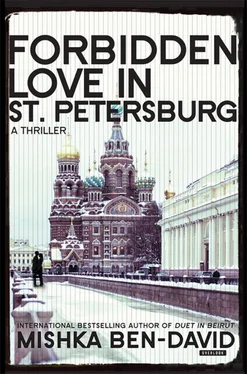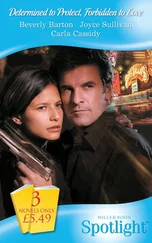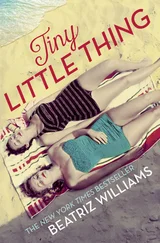But was I still what I’d once been for her? And what was left of me when everyone I had loved and everyone who had loved me had gone?
I sat at her side. Could it be that while I was holding her hand and stroking her something was aroused in that debilitated brain or old heart? Her eyes expressed nothing, but the smile that had always typified her was still there.
Her dedicated carer Madeleine was with her. Tearfully, she told me in broken English how my mother was failing from day to day and, because she had no control over her bodily functions, she would soon have to go into a palliative care ward. Madeleine asked if I’d be able to afford this because the cost would amount to more than four thousand dollars a month, excluding her own salary. I said that I could but only then remembered that I’d left most of my money behind in St Petersburg. At that rate the funds I had here in Israel would be eaten up within a year. I’d become an expert at scattering sincerely-meant promises that I wasn’t able to keep.
An initial check revealed that my Russian account had not been closed down. To me this fact meant either that I wasn’t suspected of being a spy in the first place, or that Anna had protected me and concealed the existence of the account from the authorities. Whichever it was, I’d clearly made a terrible mistake in complying with Udi and his men’s demands and as a consequence lost the love of my life. Again my guts were churning and I demanded an urgent meeting with Udi.
The conversation didn’t get us anywhere. Udi maintained his position vis-à-vis Anna and rejected my insistence that I, or one of his people, contact her and make it possible for her to come to Israel.
Do you really think that the State of Israel would allow a known KGB spy catcher to enter the country? And do you think that Anna herself would agree to come here and risk arrest? She, after all, knows what she is, and it’s reasonable to assume that she also knows that we know.
So let’s test her, I said.
Yogev, get a grip. If she comes, the Shin Bet’s working assumption will be that she’s a spy. And there’s a high probability that this will be proven right. So would you rather she spend her life here, in an Israeli jail?
I couldn’t see a way of turning things round all by myself. The passport in the name of Paul Gupta was in our apartment in St Petersburg. The one in the name of Roger Smith had been in Udi’s possession since the flight to Copenhagen. And my real passport was also being held under lock and key by the Mossad. No one’s going to allow me to take it and apply for a Russian visa. I was a long way from convincing the Mossad that they had made a mistake about Anna, and the Shin Bet’s view of me was also hostile. The feeling of loss was hard and I didn’t know how to make the situation any better.
The Mossad helped me to withdraw my money from Russia with the aid of a front man and an intermediate address. My mother was transferred to the palliative ward and I deposited the bulk of the money in a closed account enabling her to live out the rest of her days there with Madeleine at her side. With the money left over I rented an apartment in Tel Aviv not far from the sea and I furnished it with the bare essentials. I hadn’t given up on the dream of seeing Anna here, with me. In my mind’s eye, I saw us going from shop to shop, completing the furnishing of the apartment to her taste. I saw her smiling happily as I told her again and again that it’s OK, it’s within our budget.
Returning to work felt like changing gear in an old car without stepping on the clutch. There was, naturally, an intention that I should brief whoever took over from me in Russia. But in the discussions held on this issue, the fact that Anna had visited my offices and knew about my business connections came up, and the idea of sending out a replacement was promptly dropped. I was also chastised for the roundabout link I’d created between my Montreal company’s bank and Israel. The way I’d done it had, I was told, tainted the Canadian company and it was decided that it had to be closed down. The many contacts I’d made in the Caucasus and along the Caspian sea sank like a stone in its waters. From my knowledge of the Mossad, I reckoned that in the not too distant future another operative, based in Germany, France, or some other country, would appear on the scene and, for the sake of the homeland, perhaps agree to bed one of Mahashashli’s girls, and establish new contacts there. The Mossad never gives up.
Then, for a brief period, they made me an instructor. But it quickly became apparent that my story was known to all the young operatives. I was not a suitable role model for them and this experiment at finding a slot for me also came to naught.
The attempt to return me to operations was a failure that should have been foreseen. In retrospect I’m surprised at Udi and Levanon, people who knew me so well, for even thinking of doing such a thing. You don’t send a worn-out war-horse into battle. They must have been in real need to think that, after all I’d gone through, my time in Russia could be viewed as a period of rehabilitation, and that just the smell of battle would reawaken the war-horse in me. I’d never been one and only fought if I had to.
I also don’t completely understand the process that left me in the Mossad to begin with. The first thing they should have done after clearing me of the suspicion of desertion and treason, or of being a double agent, was to kick me out and keep me at arm’s length. But there were those who thought it was better that I remain under their wing so they could see me in the flesh every day. From there, by way of a predictable bureaucratic lapse, I rolled back into operations. I’d seen many similar cases, including guys who’d not completed the operational course but were nonetheless integrated into the work of HQ. When the need arose they were sent on an operation. After that they continued to be thought of as operatives without anybody bothering to mention any weaknesses noted during the training course. That, it would seem, is the way it is in such dynamic organizations where the tasks taken on are far more numerous than the available manpower.
During those days I was a broken man, lacking any kind of drive. I was free of my interrogators’ questions, but again and again images went through my mind of the slow and somewhat subdued course the relationship between Anna and me had taken before it turned into what I thought was powerful love. Now I was fighting the painful question marks that were trying to sneak into it. In my mind’s eye were dozens of pictures of Anna with me–laughing, loving, listening, explaining, happy, lustful, weeping–I was absolutely sure that none of them were staged. However, there were the conversations I’d heard with my own ears, and the pictures I’d seen with my own eyes, of Anna reporting on me and meeting up with her controller. The possibility that she’d been with me not because of love but to expose me was too hard to bear.
Then the question of what Anna was thinking and doing would flash through my mind. A food processor was mincing my insides, pulverizing everything there and turning it into thick, repulsive dough.
Unable to control myself, I continued to consider the events of the love we had and could have had–if, that is, there truly had been such a love, and if, in reality, it could have continued. In the end, during the whole of my stay in St Petersburg, from the moment all the barriers came down, our time of real happiness had been limited to just a few weeks; for me and for the woman who gave me back my youth, and who I knew, with all my heart and soul, I wanted to be with and grow old with until death did us part, that is all there was.

These thoughts tortured me day and night. Frequently, in my sleep, my hand sought Anna’s body and my chest searched for the lost spoon. When I found neither I woke up to a reality that hit me hard. I felt cold all over, there was pounding in my chest, and dryness in my throat. I had to get up, drink some water, and calm down. Then I was unable to fall asleep again until the blackness of the night outside had turned into the dark blue of early dawn. And soon after I returned to bed and fell asleep, the alarm clock woke me. I arrived at the office shattered. Anyone looking at me could see I was exhausted but no one could tell that I was, in fact, sinking into a quagmire that threatened both body and soul.
Читать дальше













